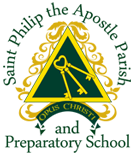FROM THE PASTOR’S DESK
Dear Parishioners,
We all have expectations – some idea of what is likely and what is unlikely for our lives. Jesus met ten men with no expectations of anything good. He transformed all their lives and especially one of those men.
First, there was a meeting with the least likely.
No-one stopped and talked with lepers. People were afraid. Getting leprosy meant losing your work, becoming a social outcast, and suffering a health condition that was miserable and eventually life-threatening. These ten lepers knew that. They had no reason to think Jesus would stop, and all they could risk doing was calling to him from a distance. Normally no-one came near to lepers. It wasn’t wise even to talk with them. Jesus broke convention and best advice.
He did talk with them. He took time, came close, and got involved with the least likely people. No-one was beyond his compassion, his reach, his care.
That is still true. Nothing – really nothing – about our lives repels Jesus. Even if everyone else shuns us, Jesus does not. We may think we are the least likely people Jesus would want, but the least likely are exactly those he does want.
Second, hope and healing are given to the least likely.
Hope is a marvelous gift. Those who are struggling with life need to know there are better times ahead, to believe there is a light at the end of their tunnel and that they will emerge stronger and able to pick life up again. The sick, the heart-broken, those who are depressed, those who are lonely – they need hope.
Hope is what Jesus gave those lepers. “Go, and show yourselves to the priests,” he told them. There is only one reason why they would do that: because according to ancient Levitical law a priest could pronounce them clean.
I imagine them looking at each other and maybe at their own skin. The weeping sores, the wounds, all still there. But Jesus was saying “Go show yourselves to the priests.” Was it possible, could it be, that healing was coming? Those lepers surged with hope, and off they went.
And that is when the healing came. While they were on the way everything changed. The sores healed. The wounds closed over. Their skin was made perfect. They looked good, and for the first time in years they felt strong, fit, and whole. “As they went, they were cleansed.”
This story does not mean we should ever pretend something is true when it isn’t. God calls us to faith but not unreality. It does mean we accept what God gives us now, but with hope for something even more wonderful ahead. Hope rose in these lepers enough that they set off to show themselves to the priests, and the complete healing came while they travelled. They went, and they were healed.
Sometimes the pain of life, the defeats, the knockdowns, the weariness sap all our energy and optimism. We become imprisoned in our own disappointments. ‘Nothing good will ever happen for me,’ we decide, and we give up believing our lives can be different. Not for us. It’s so unlikely.
Jesus meets with the unlikely. And to them, the least likely, he gives wonderful gifts and a great future. There is hope.
Third, gratitude comes from the one least likely.
Among this group of lepers, some were Jews, and some were Samaritans. Jews and Samaritans would not normally be together, but their differences were secondary because they were all lepers. They needed each other to get by, and that overcame their natural dislike.
Only one came back to fall at Jesus’ feet and thank him. It had to be a Jew. But it wasn’t. The one who returned, praising God, and pouring out his gratitude to Jesus, was a Samaritan.
“Were not all ten cleansed? Where are the other nine?” asked Jesus. Yes, ten were made well but only one came back, and that one was a Samaritan. The one least likely was the only one to return.
Probably the other nine were in a rush for the priests to authenticate their healing, and then get back to their villages, to their families, and to their livelihoods. There’s nothing wrong with those ambitions.
But they forgot Jesus. He had healed them. They knew that. Somewhere deep down they were grateful, but they had what they needed and never thought to return and thank him.
They’re like children, ripping open their birthday or Christmas gift, and then, caught up in the excitement of that new dress, new toy, new gadget, there’s no thanks. Absorbed in the gift and forgetting the giver.
Every day in this life God gives us good things. If we miss the giver, we miss the very best thing about the gift.
Fourth, the ultimate healing is given to the least likely.
All ten were made well. But the one who came back got more. He praised God and threw himself at Jesus’ feet. It was gratitude, it was worship, it was devotion. And Jesus said: “Rise and go; your faith has made you well.”
All ten had been ‘cleansed’ but this man had been made ‘well.’ That word ‘well’ in Greek is sesǀken, and it has a broader and deeper meaning than ‘cleansed’. All of them had been made well on the outside, but the one who returned was also made well on the inside. They all had healing, but he had faith and he was truly well. Lacking in expectations, least likely to have his life changed that day – the Samaritan
did not just have healing; he had salvation.
just have healing; he had salvation. God pours His blessings on this world. Those blessings can be the basics of rain, food, shelter, friends. It can be wonderful things of love, fulfillment, peace, security. They are showered on this world, and we gladly accept those
gifts.
We don’t all recognize the giver. None of us deserve God’s love, God’s gifts, God’s salvation. We are all among the least likely to be blessed. But we are blessed, and for those who come to God and give thanks, who worship and devote our lives to him, there is the deeper, richer gift of a completely healed life and the promise of eternity with our Lord.
Peace,
Fr. Monteleone
To read the complete bulletin click here



